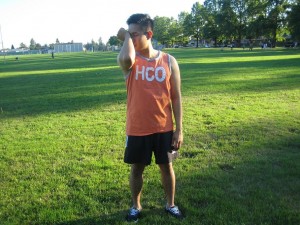Lips are the visible area of the mouth in humans and prone to end up with a bacterial lip infection. The lips are used for holding food in the mouth, articulating speech and sound. The skin of the lips is very thin and made up of 3-5 cellular layers. With the absence of the sweat glands, the skin of the lip is susceptible to drying out and at risk for infection.
Lip infection can be caused by bacteria, virus or fungus. The lips are very susceptible to infection even though there are plenty of organisms in the oral cavity. This is caused by constant washing of the lips by saliva and then the organisms are swallowed and eliminated in the stomach. Saliva has a mild antibacterial ingredient. Frequent trauma to the lips such as wearing braces and infection caused by lip bites in which bacteria is free to invade the skin of the lips when it is open and bruised.
Symptoms
- Redness and swelling of the area
- Pain can be felt on the affected area
- Small amount of bleeding on the area
- Bad breath
- A sensation of warmth can be felt on the affected area
- Fever
Lip infection can be caused by bacteria, virus or fungus. - Formation of pus or drainage in case of severe infections
- Development of a vesicle which is a sac filled with fluid on the lip
Prevention
- Maintain proper oral hygiene, brushing and flossing of teeth regularly after every meal. Gargle with an antibacterial mouth wash.
- Drink water frequently to help keep the mouth hydrated and prevent the accumulation of microorganisms as well as stimulating the formation of saliva. Saliva has antibacterial components that lessen the growth of bacteria.
- Eat foods rich in vitamins C, A, B complex, minerals and proteins to help boost the immune system of the body.
- Avoid eating spicy, hot foods and biting of the lips to help prevent infections.
Treatment
- Apply a prescribed over-the-counter topical antibiotic medication to help treat a bacterial lip infection.
- Gargle with salt water to help eliminate the infection. Salt function as an antiseptic. Mix salt in glass filled with warm water and gargle the solution to help relieve the pain and infection.
- Apply milk on the sore lips for fast healing as well as reducing the pain. It also helps minimize the infection and inflammation.
- Maintain personal hygiene by keeping the body clean to prevent invasion of bacteria on the lips.
- Eat a well balanced diet to help prevent deficiencies of some important nutrients that is need for the fast healing of the condition.
- Increase the intake of iron to help minimize any infection of the lips. Consume foods rich in iron such as sesame seeds, spinach, dairy products, organ meats and jaggary. Jaggary is a concentrated product of date, palm sap or can sugar in which the molasses and crystals were not separated.
- Apply turmeric paste on the affected area. Turmeric has an antibacterial ingredient that helps minimize the growth of bacteria in the area. Another option is drinking a glass of milk that is mixed with ½ teaspoon of turmeric powder at least 2 times every day – one in the morning and another in the evening.

